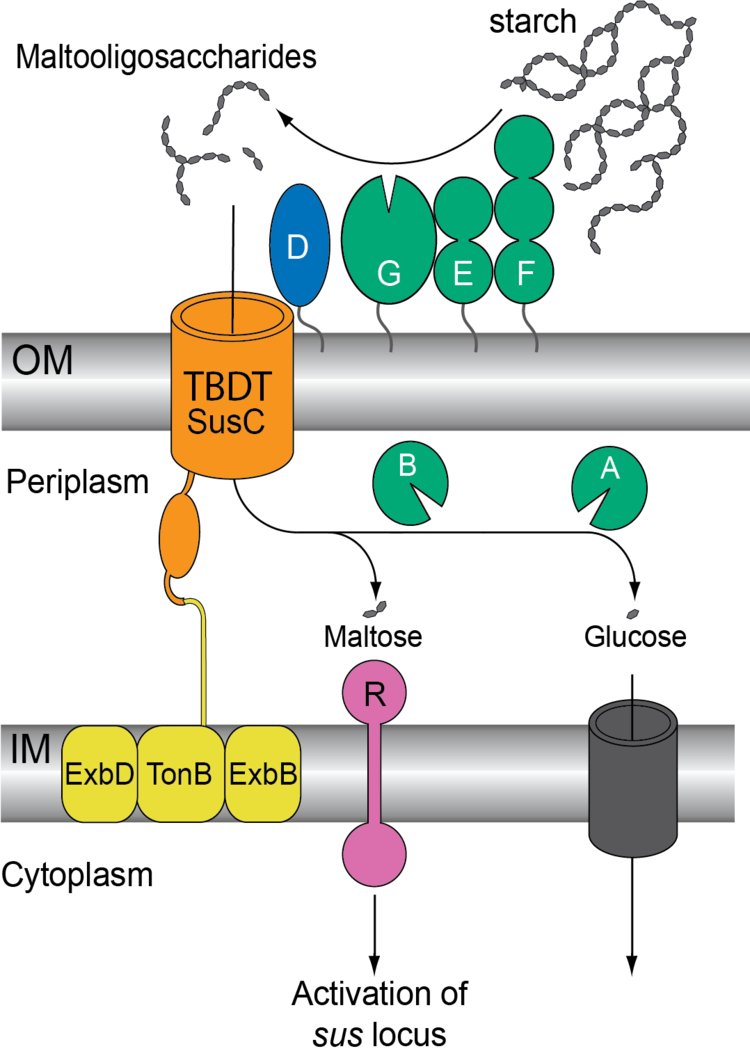Ongoing Research

The Pollet Lab’s research interests are in elucidating the molecular function of human gut bacteria with a primary focus on how the microbiota interacts with nutrients and drugs.
Our current research focuses on the Bacteroidetes, a Phylum of Gram negative bacteria found in aquatic, terrestrial, and host-associated environments including the human gut. These bacteria encode large numbers of carbohydrate-active enzymes to consume glycans from our their environment, including fiber from our diet. These enzymes are encoded within Polysaccharide Utilization Loci (PUL) that also encode genes for cell-surface proteins to bind and import glycans. The prototypical protein complex encoded with a PUL is the Starch Utilization System (Sus) of Bacteroides thetaiotaomicron. Within Sus, the protein responsible for import of starch is called SusC and is hypothesized to be a TonB-depending transporter. Prof. Pollet’s most recent work focused on the function of SusC and pairing with TonB. The lab is currently expanding this work to look at pairing with the ExbB and ExbD proteins in the inner membrane.
Prof. Pollet is trained as a biochemist and x-ray protein cryptographer. These skills are particularly useful in characterizing carbohydrate-active enzymes similar to the SusD-G proteins. Membrane proteins such as SusC and TonB are more difficult to work with and therefore, the Pollet Lab often takes a bacterial genetics approach to enhance understanding of those aspects of the complex.
